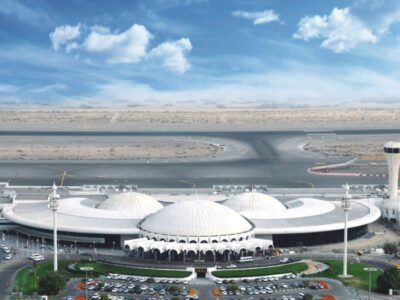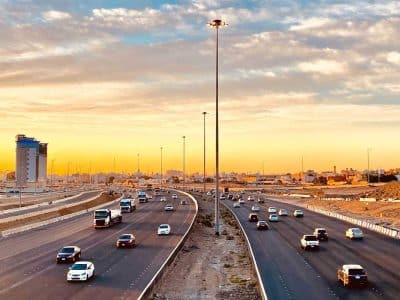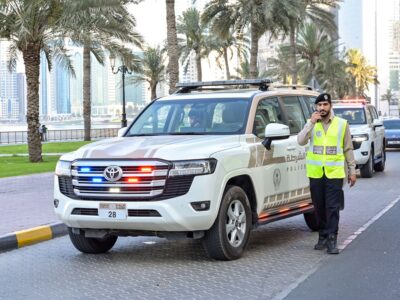US-based Boom Technology will cut the existing flight time from Dubai to London or Abu Dhabi to Sydney by half when its supersonic passenger jet comes into commercial operation.
The first test-flight of its XB-1, dubbed the “baby boom”, is set to take place next year, will connect the GCC to the rest of the world with flights up to 2.6 times faster than conventional airliners.
“Today, it takes 7:50 hours to fly from Dubai to London, or takes 14 hours if you fly from Abu Dhabi to Sydney. Boom will reduce the time to 4:32 hours and 8 hours, respectively,” company founder and chief executive Blake Scholl said on Tuesday evening during a presentation at Dubai Future Foundation.
The jet will be 10 percent faster than the now defunct Concorde, reaching Mach 2.2 or 2,335 kilometre per hour. The first test of the supersonic plane is under construction and first passenger flights are expected to begin by 2023.
Speaking to Arabian Business, Scholl revealed that nearly 10 percent of 500 global routes for supersonic travel are expected to originate from the Gulf.
“It has to do with geography as it is not clear if you can fly supersonic much over land in most parts of the world and so the Gulf is ideally positioned for lots of routes largely over water.

“If you fly from here to New York or here to Sydney you are over water most of the time. And so it’s a great place to connect supersonic traffic even more so than sub-sonic.”
Scholl refused to comment on whether he has met with any of Gulf airlines.
“I cannot comment on private conversations, but everyone’s interested in something better to offer to their passengers,” he said.
Speaking at the Arabian Travel Market (ATM) last year about supersonic travel, Emirates chairman Sheikh Ahmed, who travelled on a Concorde flight when it was in operation, said: “I think what really put this business off was the fuel at the time and the size of the aircraft. It’s up to the manufacturers to one day build an aircraft that is twice as fast as light.”
Qatar Airways chief executive Akbar Al Baker, also speaking at ATM last year, said supersonic travel was “hugely viable” with major manufacturers such as Boeing and Airbus likely to develop the technology.
Though Boom received a $33 million funding for its XB-1 prototype in March, Scholl ruled out plans to raise funds from UAE-based companies.
“We are funded today all the way through the first flight of our first airplane. We are focused on talking with customers and on getting that first airplane in the air.”
Talking about ticket prices, Scholl said the cost of flying in the 55-seater jet will be equivalent to current Business Class rates, but prices will drop over the time when bigger capacity jets will be launched, making it more economical.
Falling passenger numbers and a fatal crash in 2000 led to Concorde’s demise in 2003. Tickets were priced at around $7,650 one way from London to New York.
At present, Richard Branson’s Virgin Galactic has the option to buy the first 10 plane bodies produced by the company with another 15 reserved for another customer. Each jet is priced at $200 million.








